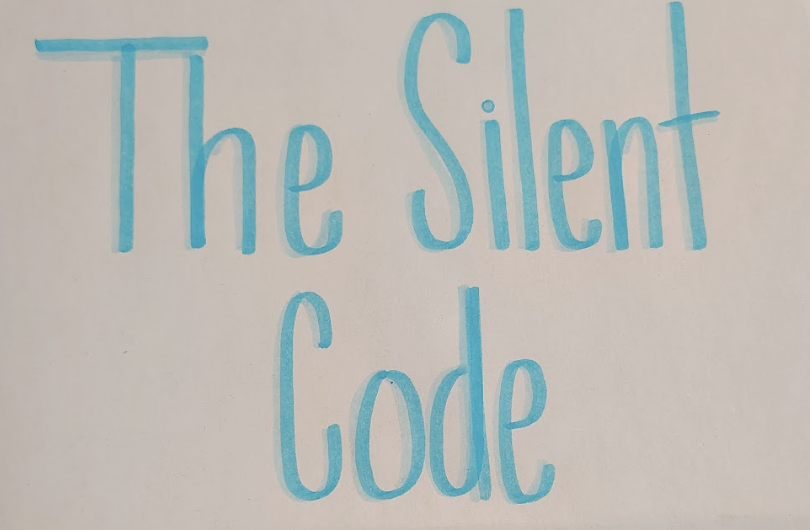“Oh, please. It’s just a little scratch—man up!” the critical father exclaims to his crying four-year-old, who had just wobbled on his training wheels and tipped sideways onto the pavement.
“Man up!” What does that even mean? In that moment, the little boy is taught to suppress pain, reject emotion, and conform to a narrow idea of masculinity. This simple phrase is more than just a scolding—it’s the voice of society imposing its expectations.
As soon as the world’s biases affect an individual, restrictions are placed on their ability to exercise true free will. Once people begin to internalize the world’s prejudice, no one uses their freedom in the same way again. Despite humans’ ability to think freely, the overwhelming societal constructs make it extraordinarily difficult to overcome fate and pursue authentic freedom.
There are certain traits that the world inflicts on specific groups of people. Hubris, pride, and not showing weakness are imposed on men. And yet, while we tend to expect these kinds of traits—confidence, assertiveness, dominance—from men, we don’t accept them when they show up in women.
When women choose careers in male-dominated fields like law or engineering, they often face the “likeability penalty.” Whenever a woman asserts herself or takes on a leadership role, she’s more likely to be called aggressive or unlikable. This unfair perception limits their chances for promotion or leadership. A woman with the same qualifications as a man might be passed over, not because of her skills, but because of how she’s perceived. Society continues to prioritize traits like warmth and likability over actual ability and experience—at least when it comes to women. So women will never use their free will in the same way, now knowing what people think and what will happen when they step up and assert their dominance.
If the community hadn’t placed these expectations on how genders should conform, women wouldn’t have to deal with all these unnecessary obstacles. But these kinds of biases don’t just show up out of nowhere—they’re reinforced over time, by the media, schools, workplaces, and even people who might not realize they’re doing it.
From a young age, we’re all taught that leaders should be confident and assertive—but when girls act that way, they’re often called “bossy,” while boys are praised. It’s not because women are less capable. It’s because they’re constantly expected to stay in a box. And the more this happens, the more it will become the norm. People start believing it’s just “how things are,” and that mindset affects who gets hired, promoted, or taken seriously.
It’s not just that society accepts these traits in men—it encourages them. But when women show the exact same qualities, they’re criticized. Until we challenge these patterns, they’ll keep holding people back and free will will continue to be unequal.
Some might argue that it’s just hard work and dedication that determine where we go—that if you really want to have a successful future, you can overcome anything, including societal expectations. But this kind of thinking usually comes from people who haven’t had to face the limits those expectations create. They might say things like, “Just work harder,” or “Don’t let stereotypes define you,” as if that’s easy to do. But it’s a lot harder to “rise above” something when the system itself is holding you down, restricting your free will.
The people who don’t see the problem are often the ones benefiting from it. Because they’ve never been pushed down by the system, they think it doesn’t exist—or they think everyone has the same shot. But that’s just not true. Right now, people’s decisions are shaped by the fear of being judged or punished for stepping outside the “norm.”
Free will exists—but it’s not equally available to everyone. And unless we recognize how deeply society shapes our choices, we can’t pretend everyone has the same chance. If people would just let others live—without expecting them to act, dress, or speak a certain way—it would give everyone more space to choose freely.
Society’s pressures shouldn’t get to decide our fate or define our freedom. When outside forces control how we act, they limit our ability to live fully and freely.
So, future fathers: raise your boys not to fear failure, sensitivity, or emotion. I promise your son will be more than fine if he cries sometimes.
And future mothers: it’s perfectly okay if your daughters speak up, take charge, and assert themselves. They’ll only grow fragile if you make them feel they constantly have to be pretty and perfect.
Just let people live their lives without the fear of judgment, limits, and labels. Because if we don’t fix this, free will won’t just be limited—it will continue to be unfairly distributed.























Noah Egdes • May 15, 2025 at 6:12 pm
That’s my sister!!! Slay queen